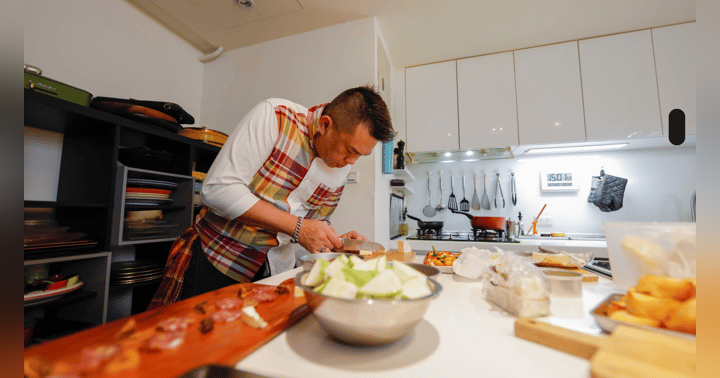Valentine’s Day: Origins and Opportunities

Valentine’s Day is one of the most significant dates in the hospitality calendar, and for good reason.
It’s a day when people seek out unique experiences, indulgent meals, and romantic getaways, giving hospitality businesses an excellent opportunity to shine.
But to truly maximise the potential of February 14th, it helps to understand the roots of the occasion and how it has evolved into a modern celebration.
Valentine’s Day traces its roots back to Ancient Rome. The day was originally linked to Lupercalia, a pagan fertility festival held in mid-February. As Christianity spread, the holiday was rebranded and named after Saint Valentine. While there are multiple legends surrounding Saint Valentine, the most popular story involves him performing secret marriages for young couples, defying a Roman emperor’s decree.
By the Middle Ages, Valentine’s Day had grown into a day for celebrating love and courtship, with handwritten love notes becoming a tradition. Fast forward to the 19th and 20th centuries, and the holiday became increasingly commercialised, transforming into the global celebration of romance we know today.
Valentine’s Day is a significant revenue generator, with couples (and even groups of friends) looking for ways to celebrate. The opportunities for hospitality businesses are vast, ranging from intimate dining experiences to luxurious overnight stays. Here are a few reasons why the day is so important:
-
Increased Demand: Restaurants, hotels, and bars often see a surge in bookings as couples plan romantic outings.
-
High Spending Power: Guests are more willing to splurge on premium experiences, from fine dining to deluxe packages.
-
Emotional Connection: Valentine’s Day offers businesses a chance to connect emotionally with their guests, enhancing loyalty and brand perception.
To make the most of this lucrative day, hospitality businesses need to plan ahead and think creatively. Here are some practical strategies:
1. Create Special Menus or Packages
Valentine’s Day calls for exclusivity. Develop a themed menu or experience that feels indulgent and unique. Consider multi-course meals with wine pairings, aphrodisiac-inspired dishes, or sharing platters for couples. Hotels could offer romantic overnight packages, including champagne, flowers, or breakfast in bed.
2. Add a Personal Touch
Valentine’s Day is all about romance, so adding personal touches can elevate the guest experience. Think handwritten notes, complimentary desserts with a “Happy Valentine’s Day” message, or bespoke playlists for a romantic atmosphere. Small details make a big impression.
3. Leverage Social Media and Digital Marketing
Use social media to build excitement in the weeks leading up to February 14th. Share photos of your Valentine’s Day offerings, run promotions or competitions, and encourage guests to tag your venue in their posts. Instagram-friendly décor or special photo spots can encourage organic marketing.
4. Think Beyond Couples
While Valentine’s Day traditionally celebrates romantic love, there’s a growing trend towards inclusivity. Consider offering Galentine’s Day events for friends, family-friendly Valentine’s promotions, or even self-care packages for singles.
5. Focus on Timing
Don’t limit your efforts to February 14th. Extend the celebrations into the weekend before or after, allowing more flexibility for guests. Offering early bird or post-Valentine’s deals can attract those who prefer to avoid the crowds.
6. Upsell and Cross-Sell
Maximise revenue by offering add-ons such as premium wines, flower bouquets, or personalised gifts. For hotels, think about upgrades like spa treatments or late checkouts to enhance the experience.
7. Collaborate Locally
Partner with local florists, chocolatiers, or photographers to create packages that feel thoughtful and cohesive. Collaborative efforts not only enhance the guest experience but also help cross-promote your business.
-
Fine Dining Restaurants: Michelin-starred venues often craft exclusive Valentine’s tasting menus featuring seasonal ingredients and wine pairings. An added touch like live music or candlelit décor can heighten the romance.
-
Boutique Hotels: Many hotels offer all-inclusive Valentine’s packages, featuring rose petals, champagne on arrival, and even curated itineraries for exploring the local area.
-
Casual Dining Venues: Pubs and bistros are getting creative, too, with quirky Valentine’s themes like “anti-Valentine’s” events or comedy nights for couples looking for something less traditional.
Valentine’s Day presents a fantastic opportunity for hospitality businesses to showcase creativity, drive bookings, and deliver exceptional experiences. By understanding the day’s history, tapping into guest emotions, and offering unique and personalised options, you can turn February 14th into a standout success for your business.
After all, hospitality has always been about creating memorable moments—and what better time to do so than the most romantic day of the year?



